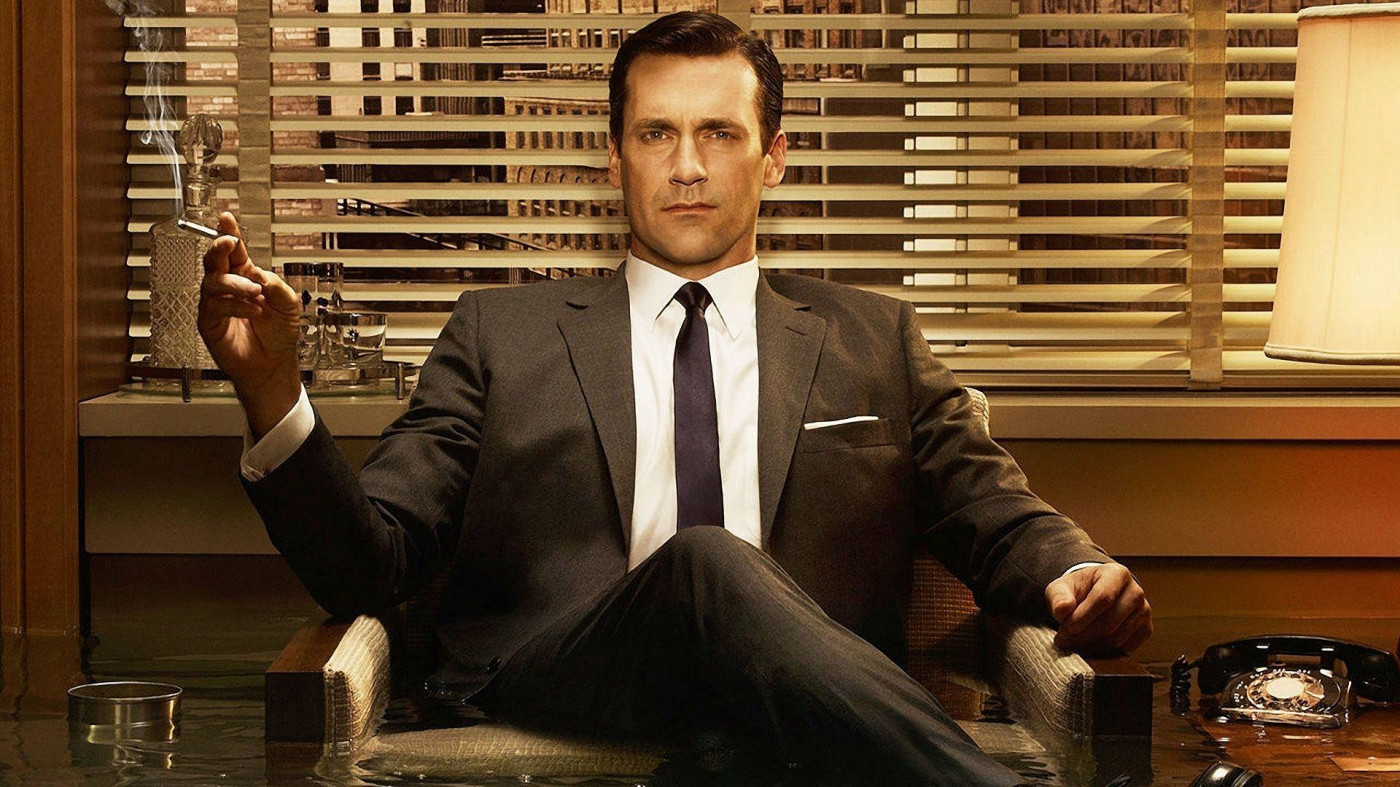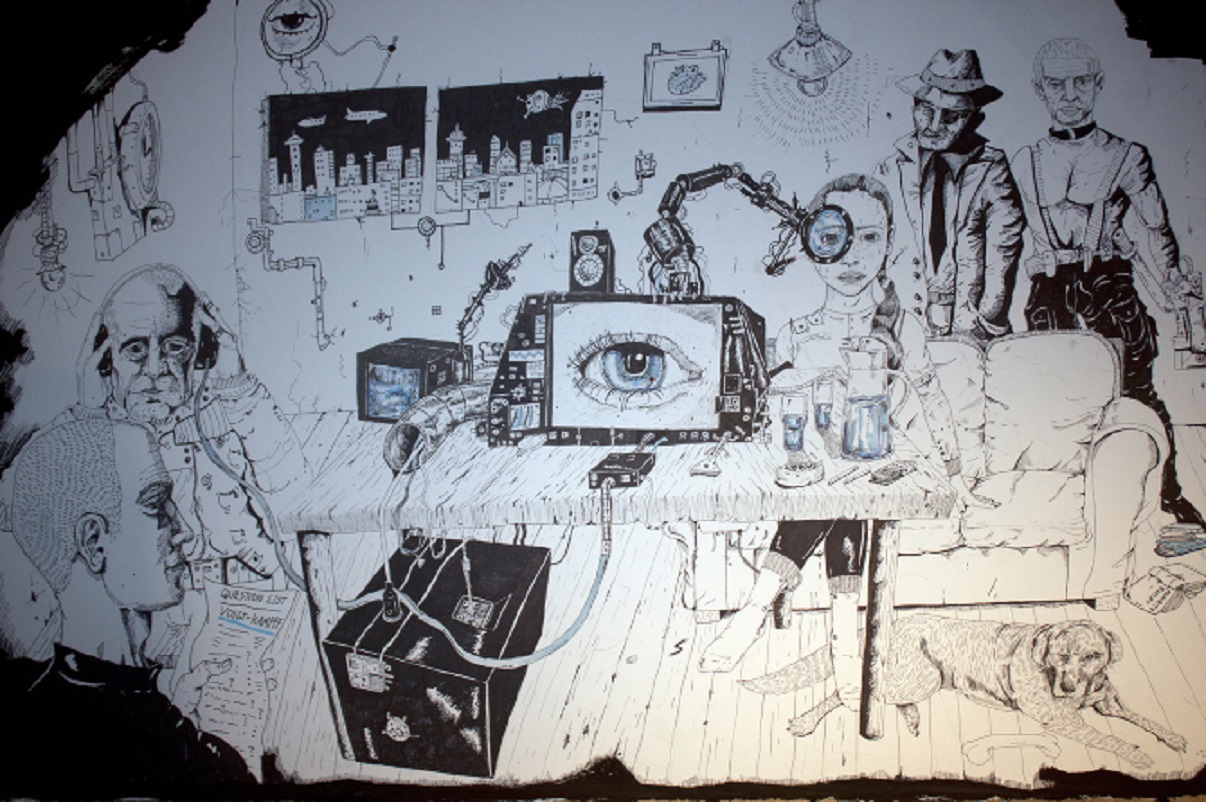There are only ‘things’ (of whatever sort or type or variety) and the ‘Non–thing’, or the ‘No-thing’, of which there is only One. There are very many things (as many of them as we want, in fact) but only one No-thing. The things don’t matter because they are ‘only what we make of them’, and so if we didn’t make anything of them then they wouldn’t be anything! The No-thing – on the other hand – does matter. It matters no matter how much we try to make out that it doesn’t matter. The No-thing does matter (no matter what our attitude may be) precisely because it isn’t ‘what we make of it’. It matters precisely because it is independent of us and our viewpoints.
Our lives – we might say – consist [1] of ‘us ignoring the No-thing and pretending that only things are important’, and [2] of ‘the problems or difficulties that we create for ourselves as a result of us pretending that the No-thing isn’t real’. There is a complication added to this basic situation however and the complication comes about because of the way in which we try to fix the fallout created by our reliance on things by bringing into play yet more things. This is the complication that we’re looking at here and as complications go it’s a pretty good one. It’s a pretty good one because it goes on forever! It’s an infinite regression (of course) and what’s more it’s an infinite regression into a world of unlimited pain.
This doesn’t sound too great obviously – no one’s going to like the sound of an infinite regress into a world of pain. As a situation it would seem to have little enough to recommend it and yet this is the dubious territory that we are all heading into. This is the attractor state that we unfailingly gravitate towards. The alchemists would have referred to this tendency of ours as the Way of Error (or via erratum) and it’s not too hard to see why. There are many ways to talk about the Way of Error and one of them is to see to say that the via erratum is when we try to extricate ourselves from our troubles by our own efforts. It is where we try to rescue ourselves from the troubles that we have created for ourselves by our own ongoing attempts to rescue ourselves.
Another way of talking about the Way of Error might be to say that it is what happens when we try to fix the mess that we have made by interfering in things with yet more interference. There is a great big muddy puddle that we’re stuck in and we’re trying to clear it by stirring it as hard as we can with a big stick. ‘A few more vigorous stirs and it’ll be fixed’, we say to ourselves. It might be (naively) assumed that we would learn fairly quickly to see the fundamental mistake that we’re making when we insist on going down the ‘forcing route’ of trying make things be the way we think they ought to be but this is not so. The more of a mess things become as a result of our interference the more we are compelled to interfere to try to make it right again.
This is a classic positive feedback spiral therefore – the more out of control things get the more we are afraid and the more we are afraid the more we control, and the more we control the more out-of-control things get. This is more than just a bit similar to the situation that we find ourselves in when we happen to be in the throes of a gambling addiction – the more money we lose (the more of a disaster that we create for ourselves with our gambling) the more we want to cure the situation with ‘one more throw of the dice’. We are – in effect – driven by the perverse (but invisible) need to enact our own doom! We’re doom-seeking, in other words! The one thing we find it all but impossible is to learn how not to compulsively interfere in our situation. This is the only true mark of autonomy, that we aren’t slave to our likes and dislikes, our preferences (and that we aren’t – therefore – slaves to the need to control that necessarily follows on from these preferences).
Controlling is part and parcel of ‘the World of Things’ – which is to say, ‘the World of our Thoughts’ (since outside of our thoughts there are no things). There is absolutely no way in which we can inhabit this world without being involved in non-stop controlling; we might believe that there is, but there isn’t. Taking up permanent residence in the World of Things means that we have identified with one particular thing, that one particular thing that we call ‘myself’, and it is this act of identification that condemns us to a life of non-stop controlling. To be identified condemns us to a life of futile striving (although we won’t read this in the promotional literature); it condemns us to a life of futile striving (or ‘non-stop controlling’) because what we’re doing when we’re in this identified position is that we’re trying to make the unreal thing that we’re identified with be not unreal. Or as Greg Tucker would say, our fundamental motivation is to prove that the self which mind is dreaming isn’t a dream but an independently existing reality. That this is so is what Greg Tucker calls The Master Lie.
To be adapted to the World of Things (so that the things in question actually seem real to us) is to be ‘controlled by the need to control’. To be ‘controlled by the need to control the things that we unquestioningly believe in’ is simply to be ‘controlled by things’, although we don’t although we don’t of course perceive it like this. We perceive ourselves (when everything is going according to plan) to be ‘in control’ and this is a very agreeable sensation for us, but the reality that we don’t see is that we are being controlled by the need to control, which is an insight that we aren’t ordinarily familiar with, needless to say. We wouldn’t be feeling so good (or so smug) about ‘being in control’ otherwise, obviously enough.
What we’re talking about here is essentially an addiction, therefore – we’re addicted to control. The thing about addiction is of course that when we are able to satisfy it successfully then we feel good (i.e., there is a sense of security in being a successful slave); not only do we feel good generally, we feel good about ourselves. We feel ‘on top of things’, we’ve got the ‘Winner Buzz’ going on, we’re enjoying the ‘Success Buzz’. This is a joke however because we’re not on top of anything; the addiction is ‘on top’, not us. The addiction is always on top. The addiction to control is just like any other addiction in this regard therefore but with – we might say – one significant difference. The difference is that being addicted to control is being addicted to an unreal thing.
Control seems to be real of course but ultimately it can’t be. Control can’t be real if things aren’t real, if our mental categories aren’t real, if our assumed framework isn’t real. We control on behalf of things, after all; our controlling makes no sense otherwise! We control (or we try to control) all the other things on behalf of that very special thing we call ‘the self’. Control – and the advantageous outcome that we hope will come about as a result of it – would be real if the viewpoint we have identified with were in some significant way different to any other viewpoint we might take, but it isn’t. We’re just pretending that it is and so the whole polarity of ‘advantage versus disadvantage’ doesn’t actually mean anything. It doesn’t mean anything in any absolute way, it only means something in a relative way, it only means something in relation to our assumed basis and our assumed basis isn’t really a basis at all. It can’t be because there’s no such thing as ‘a basis’.
Instead of talking about things we could just as well talk about ‘fixed points in space’ and say that control always has to happen in relation to fixed points in space. This might sound perfectly unproblematic to us, and it might be unproblematic if it were not for the fact that there are no fixed points in space! There is only space, all these fixed points are only arbitrary projections. Control thus becomes a deadly trap – when we get ourselves in trouble as a result of taking these fixed points too seriously then we try to escape the trouble we’re in with the help of yet more fixed points. We add fuel to the fire, we compound the problem, we get drawn ever deeper into the Unreal maze of Hyperreality. We can’t free ourselves from the mess that has been caused by our reliance on (or addiction to) fixed points by bringing to play yet more fixed points. Fixed points can’t save us, only unconditioned space can do that…






